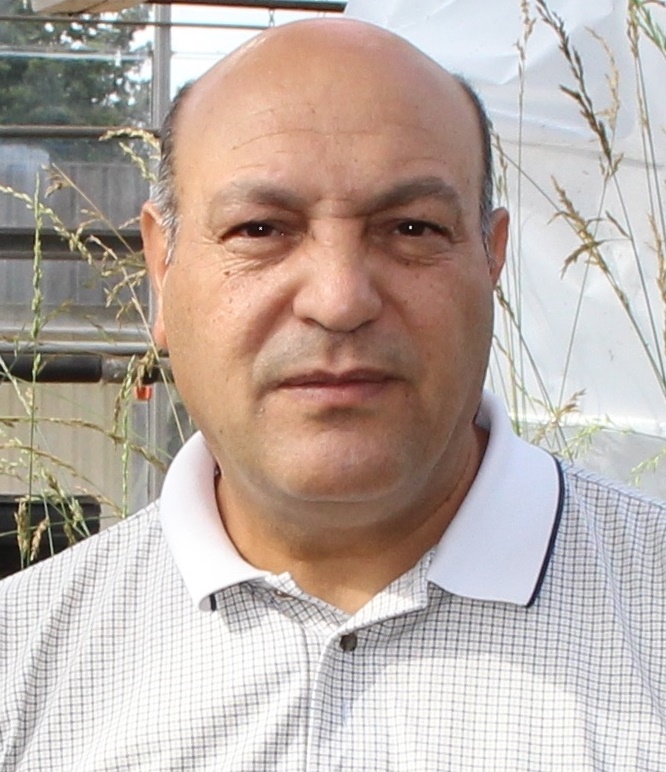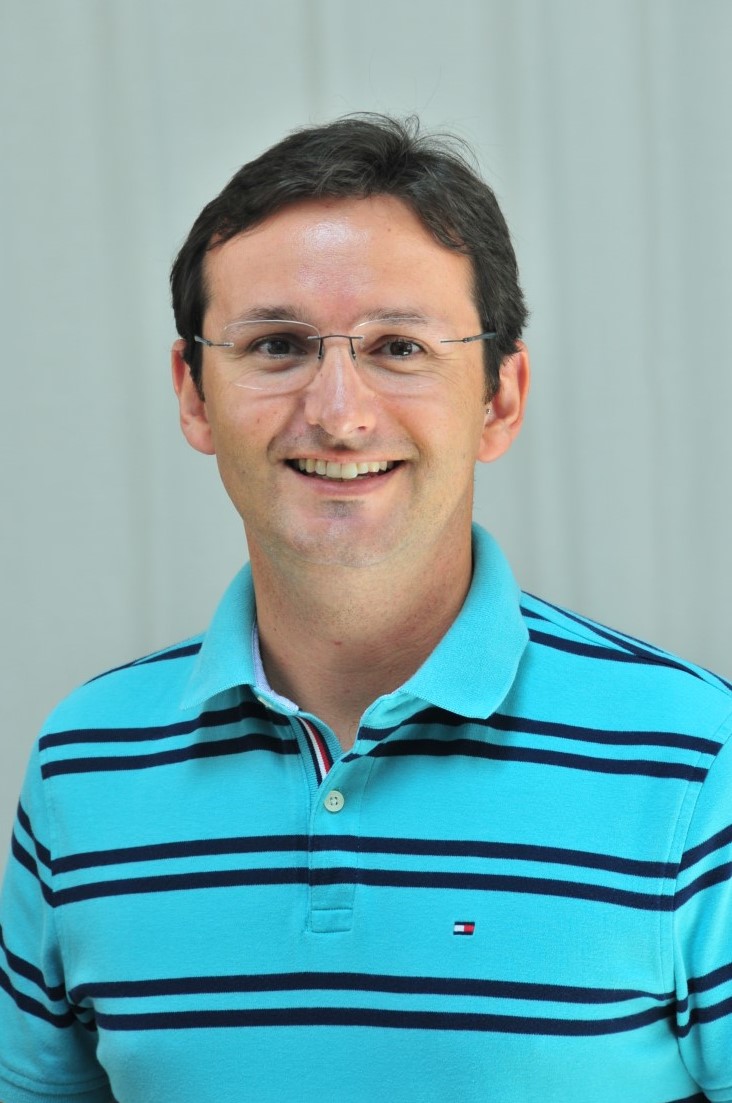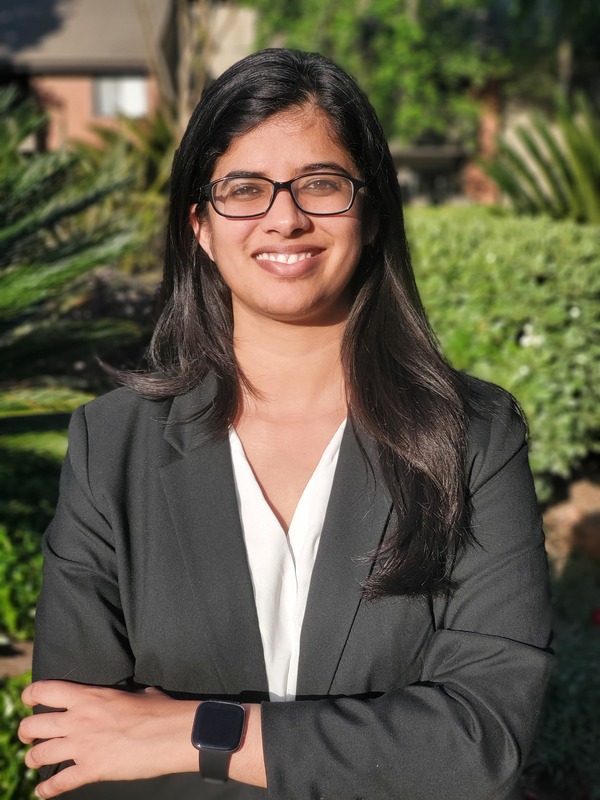Policy Information
The Plant Growth Facilities (PGF) have established policies to ensure consistency, clarity, and efficiency in our operations. These policies define the various services provided by PGF and outline the responsibilities of our users. The PGF Faculty Advisory Committee (FAC) plays a key role in providing advice and guidance on policy updates to ensure alignment with our research and teaching objectives. The FAC consists of rotating representatives from departments within the College of Agricultural and Environmental Sciences, including Crop and Soil Sciences, Entomology, Horticulture, and Plant Pathology, with membership rotating every three years. This structure ensures that our facilities are continuously improved to meet the evolving needs of the programs they support. All PGF users are encouraged to reach out to their departmental representative for additional information.
Faculty Advisory Committee (FY 25-27)

C. Robin Buell
Georgia Research Alliance Eminent Scholar Chair in Crop Genomics
Crop & Soil Sciences

Ali Missaoui
Associate Professor
Crop & Soil Sciences

Rhuanito Soranz Ferrarezi
Associate Professor; Emphasis: Controlled environment horticulture
Horticulture

Ruchika Kashyap
Assistant Professor Urban & Controlled Environment Pathology
Plant Pathology

General Liability
Starting agricultural research in artificial environments involves accepting all inherent risks. PGF Professionals work hard to minimize these risks, but neither they nor the PGF unit can be held responsible for any resulting material or financial damage. For more information, please contact UGA Insurance & Claims Management.
POLICY INFORMATION
Space Requests
How to Request Space
All space requests should be submitted through the PGF Space Request Form. If you encounter any issues submitting the request, please email to ugapgf@uga.edu.
- Research space: Submit at least 1 month in advance.
- Teaching space: Submit at least 2 months in advance
After you email, we’ll ask for more details and confirm or deny your reservation based on availability and other factors.
In your space request email, include:
- Project timeline (tentative start and end dates)
- Estimated bench area required (in square feet)
- Chart String (speedtype – fund – program – class – department – operating unit)
- Grant funded? (Yes/No)
- Crop type
- Brief project description
- Desired climate (day/night temperature ranges)
- Other needs/information (pesticide incompatibilities, supplemental lighting, soil mixing and sterilization, etc.)
- Contact for person in running the experiment
- Contact for quarterly invoicing
*Note: Please use the formal space request form above. Only send an email if you encounter an error while submitting the request.
Things to Know
- Spaces reserved for teaching and instruction are exempt from user fees, but users must provide all necessary supplies.
- Shared usage: Some greenhouse compartments are designated as shareable to optimize available space. PGF may assign individual benches within these compartment if space is available. If a project requires exclusive use of a compartment, the user will be invoiced for the full compartment.
- PGF handles all space assignments, and users cannot reassign their space to others.
- Long-term reservations (over 1 year) are not guaranteed due to limited space.
Biosafety Compliance
In some cases, projects need isolated compartments for biosafety compliance. Due to limited greenhouse space, exclusive use of a compartment for small projects is unlikely. These projects may be better suited for the PGF growth chamber facilities. Please review A Practical Guide to Plant Containment (PDF) and UGA’s Institutional Biosafety Manual (PDF) before submitting these types of requests.
PGF can help with audit compliance and facility modifications, but this is not guaranteed or always funded by PGF. Planning ahead and involving PGF staff early will increase the likelihood of meeting your needs.
PGF Responsibilities
Staff Support and Services
PGF professionals manage your greenhouse and growth chamber spaces and are your main contacts for facility-related questions. They offer limited technical support for research project design and collaborate with labs to optimize facility usage. While PGF professionals are knowledgeable in plant care, they do not specialize in diagnosing fertility or disease issues and are not qualified to provide assessments in these areas.
Assigned PGF professionals perform daily walkthroughs of each greenhouse and growth chamber to inspect for potential technical issues, ensure cleanliness, carry out necessary maintenance tasks, and conduct Integrated Pest Management (IPM) scouting on plants.
Key Duties:
- Repairs and maintenance
- Soil sterilization before potting (if requested)
- Environmental controls setup and monitoring
- Routine scouting and treatment of pests
- Drip irrigation installation and programming (if requested)
- Install and maintain PGF-owned supplemental lighting (if available)
- Post-project sterilization of soil and plants (if requested)
PGF Professionals are assigned student workers to help with:
- Cleaning/sterilizing floors, trusses, and benches as needed
- Trash and compost disposal
- Weekly fertilizations (if requested)
- Weekend watering support (if requested)
Integrated Pest Management Practices
PGF Professionals are highly trained and hold pesticide applicator licenses in accordance with Georgia and federal regulations. They practice Integrated Pest Management (IPM) strategies to effectively manage plant pests and pathogens, which include:
- Maintaining facilities free of weeds and debris
- Conducting regular pest scouting to detect issues early
- Minimizing movement between high and low pest areas
- Introducing beneficial organisms for natural pest control
- Applying pesticides strategically, using targeted methods and proper timing
- Rotating compartments and sterilizing them between projects
- Quarantining incoming plants to prevent the introduction of external pests
- Scouting and treating quarantined plants before integrating them into the facilities
- Advising users on best practices for addressing areas where that require attention
User Responsibilities
Users must handle all potting, watering, pruning, trellising/staking, and harvesting of their plants.
Watering
Watering is the user’s responsibility
- If your lab is unable to water daily, PGF can install a standard automated drip irrigation system. If you anticipate needing this service, coordinate with your PGF professional.
- While labs are responsible for their own watering, PGF can assist during university holidays, weekends, and emergencies on requests. Please coordinate with your PGF Professional if you need help during these times.
- The PGF watering crew is thoroughly trained by professionals before being assigned weekend responsibilities. The crew visits every greenhouse, following a weekly updated checklist for watering and inspections of the designated greenhouses. However, if you continue to experience issues with the PGF watering crew for your research, we strongly recommend allocating lab personnel for the weekend watering duties.
Materials and Storage
| NOT Provided | Provided |
|---|---|
| Pots/flats Vertical plant supports (bamboo stakes, tomato cages, etc.) Hand tools (trowels, shears, etc.) Lab equipment and consumables Potting media | Steam sterilizer Industrial soil mixer Pot washing station On-site waste disposal systems Bulk soil storage with Forklift assistant Rentable outdoor storage lockers |
Bulk soil and other greenhouse materials can be ordered through PGF by filling out the quarterly ordering form sent to all users. Materials take time to arrive, so this option is best for labs that can plan months ahead and want to reduce costs. PGF coordinates these deliveries and informs labs where to find their orders. If you can’t order in bulk or in advance, source materials locally.
Labs cannot use bench space for storage. Each lab may have one black rolling rack in their greenhouse section for regularly needed small items like pruners, plant tags, etc. Larger items should not be stored on the rack. Keep materials organized and remove them promptly after the project ends. For a rolling rack, coordinate with your PGF Professional. For larger items, inquire about renting a storage locker.
Any large items stored without the greenhouse manager’s permission that block safe exit or access as determined by the fire marshal, or that interfere with the greenhouse manager’s ability to move equipment, will be discarded.
Usage Guidelines
- Report maintenance issues to your PGF Professional immediately.
- Do NOT adjust facility equipment or climate controls. Contact your PGF Professional for changes.
- Do NOT make any structural changes to any part of the facilities.
- All greenhouse sections have red and green cans. Red cans are for trash and should go in dumpsters. Green cans are for compostable materials and should go to the designated compost site. Plant and soil materials requiring steam sterilization should be placed on the wagon by R2C. Please contact your assigned greenhouse professional for assistance.
- Users must promptly repair any damage they cause to PGF facilities and equipment at their program’s expense. The PGF superintendent has the authority to remove users who fail to comply with this rule and continue causing significant damage to PGF properties.
- Only project-related plants are allowed in the facilities.
- Do NOT store field research supplies and equipment in PGF facilities.
- Do NOT store hazardous chemicals, pesticides, corrosives, acids, or RCRA-listed compounds in greenhouses.
- Keep greenhouse doors closed to prevent pests.
- Do NOT park in unmarked areas or between greenhouses to avoid blocking access and causing damage.
- Notify your PGF Professional when your project is complete, and promptly remove all plants.
- After your experiment, remove all plants, supplies, and tools within 2 weeks. Any leftover items will be considered waste, and you’ll be charged $500 for disposal.
Facility Access
Parking Permits
If you don’t already have a permit to park on campus, please contact UGA Transportation & Parking Services to obtain one for lot E-14. Be aware that parking without a permit may result in a fine.
Shipping and Receiving at PGF
Send all large packages and palletized freight for research not managed by PGF to Central Receiving. This may add 1 to 2 days to delivery times. Central Receiving has the trained staff and equipment to maneuver packages safely around the facilities, as other suppliers have caused damage in the past. Please communicate with the PGF Superintendent and your Professional about any freight for PGF greenhouses or growth chambers before purchasing items. Get more information about routing and delivery from Central Receiving.
Small packages can be shipped to PGF Greenhouses, 111 Riverbend Rd, Athens, GA 30602 via standard carriers.